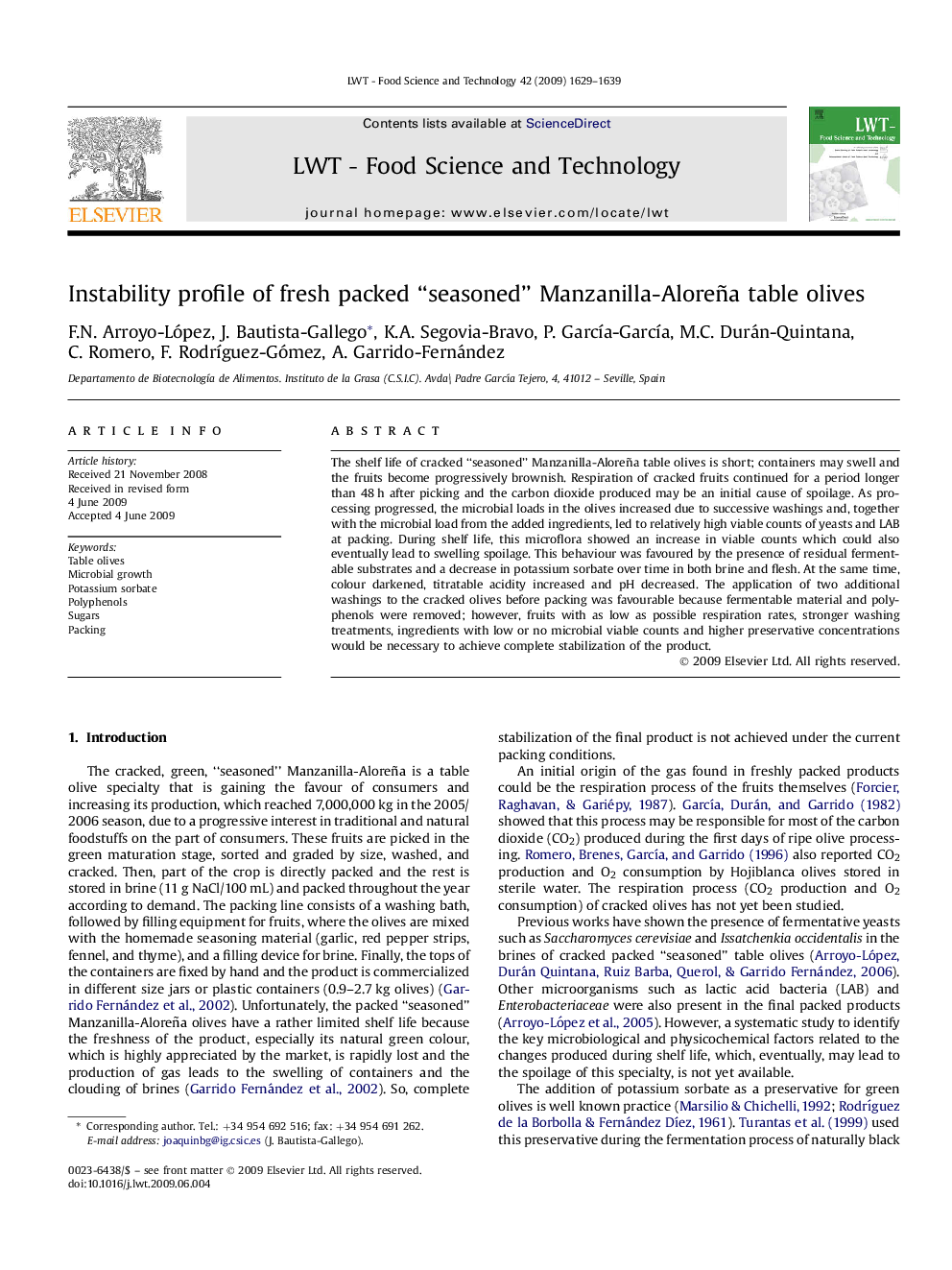| Article ID | Journal | Published Year | Pages | File Type |
|---|---|---|---|---|
| 4564697 | LWT - Food Science and Technology | 2009 | 11 Pages |
The shelf life of cracked “seasoned” Manzanilla-Aloreña table olives is short; containers may swell and the fruits become progressively brownish. Respiration of cracked fruits continued for a period longer than 48 h after picking and the carbon dioxide produced may be an initial cause of spoilage. As processing progressed, the microbial loads in the olives increased due to successive washings and, together with the microbial load from the added ingredients, led to relatively high viable counts of yeasts and LAB at packing. During shelf life, this microflora showed an increase in viable counts which could also eventually lead to swelling spoilage. This behaviour was favoured by the presence of residual fermentable substrates and a decrease in potassium sorbate over time in both brine and flesh. At the same time, colour darkened, titratable acidity increased and pH decreased. The application of two additional washings to the cracked olives before packing was favourable because fermentable material and polyphenols were removed; however, fruits with as low as possible respiration rates, stronger washing treatments, ingredients with low or no microbial viable counts and higher preservative concentrations would be necessary to achieve complete stabilization of the product.
